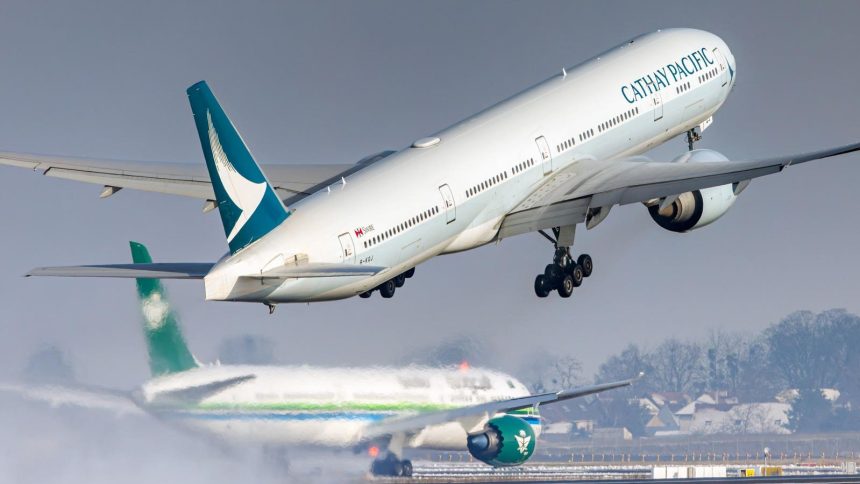Ecoceres, a burgeoning force in the sustainable aviation fuel (SAF) industry, is poised to disrupt the conventional jet fuel market with its innovative approach to producing eco-friendly alternatives. Spun off from Hong Kong utility giant Towngas, owned by billionaire Lee Shau Kee, and bolstered by investments from Bain Capital, Ecoceres has rapidly ascended to unicorn status, driven by its commitment to decarbonizing the aviation sector. The company’s core technology involves transforming readily available waste products like animal fat and used cooking oil into SAF, significantly reducing the carbon footprint of air travel compared to traditional kerosene-based fuels. This process, combined with a focus on maximizing production yield, positions Ecoceres as a key player in the global transition towards greener aviation.
The company’s ambitious growth strategy is centered around a new state-of-the-art production facility in Malaysia, strategically located in the heart of a region abundant in palm oil waste, a key feedstock for SAF production. This new plant, slated for completion by the end of 2025, will complement Ecoceres’ existing facility in China and is projected to dramatically increase the company’s annual SAF output. With an anticipated production capacity of 700,000 tonnes per year, Ecoceres aims to capture a significant share of the burgeoning SAF market, projected to reach 2.1 million tonnes by 2025. This aggressive expansion is driven by the company’s commitment to achieving an industry-leading yield of 85%, significantly surpassing the current industry average, further solidifying its competitive edge.
Ecoceres’ leadership, spearheaded by former Neste CEO Matti Lievonen, emphasizes a multi-faceted approach to innovation. Beyond optimizing existing production processes, the company is actively exploring new feedstocks and technologies to diversify its SAF portfolio and ensure long-term sustainability. Carinata, a non-food crop capable of thriving in less fertile lands, is being investigated as a potential source of oil for SAF production. Simultaneously, Ecoceres is investing heavily in alcohol-to-jet technology, a process that converts ethanol derived from agricultural waste into high-energy jet fuel. This commitment to research and development underscores Ecoceres’ dedication to staying at the forefront of SAF innovation.
The timing of Ecoceres’ expansion aligns perfectly with the growing global momentum towards sustainable aviation. Regulations, such as the European Union’s mandate for increasing SAF usage in jet fuel blends, are creating significant market demand for eco-friendly alternatives. Ecoceres is already capitalizing on this trend, with a significant portion of its revenue stemming from SAF sales to European airlines like Lufthansa. Furthermore, emerging markets in the U.S. and Asia, incentivized by government policies and growing environmental awareness, represent significant growth opportunities for the company. These factors, combined with Ecoceres’ expanding production capacity, position the company for significant growth in the coming years.
Despite the promising outlook, the SAF industry faces inherent challenges. The high cost of SAF compared to traditional jet fuel remains a significant barrier to widespread adoption. Limited feedstock availability also poses a constraint on production scale-up. Ecoceres’ strategic focus on diversifying its feedstock base and optimizing its production process aims to address these challenges. By exploring alternative sources like carinata and investing in cutting-edge technologies like alcohol-to-jet, the company seeks to reduce production costs and increase the availability of sustainable alternatives, ultimately paving the way for a more accessible and environmentally friendly aviation sector.
Ecoceres’ journey reflects a broader shift in the energy landscape, driven by the urgent need to decarbonize industries traditionally reliant on fossil fuels. The company’s innovative approach to SAF production, coupled with its strategic vision and commitment to research and development, positions it not only as a leading provider of sustainable aviation fuel but also as a catalyst for positive change within the aviation industry. As the world moves towards a greener future, Ecoceres is poised to play a pivotal role in shaping the future of flight, enabling a more sustainable and environmentally conscious approach to air travel. The company’s projected growth and ambitious targets underscore its determination to be a driving force in the transition towards a cleaner, more sustainable aviation sector.



